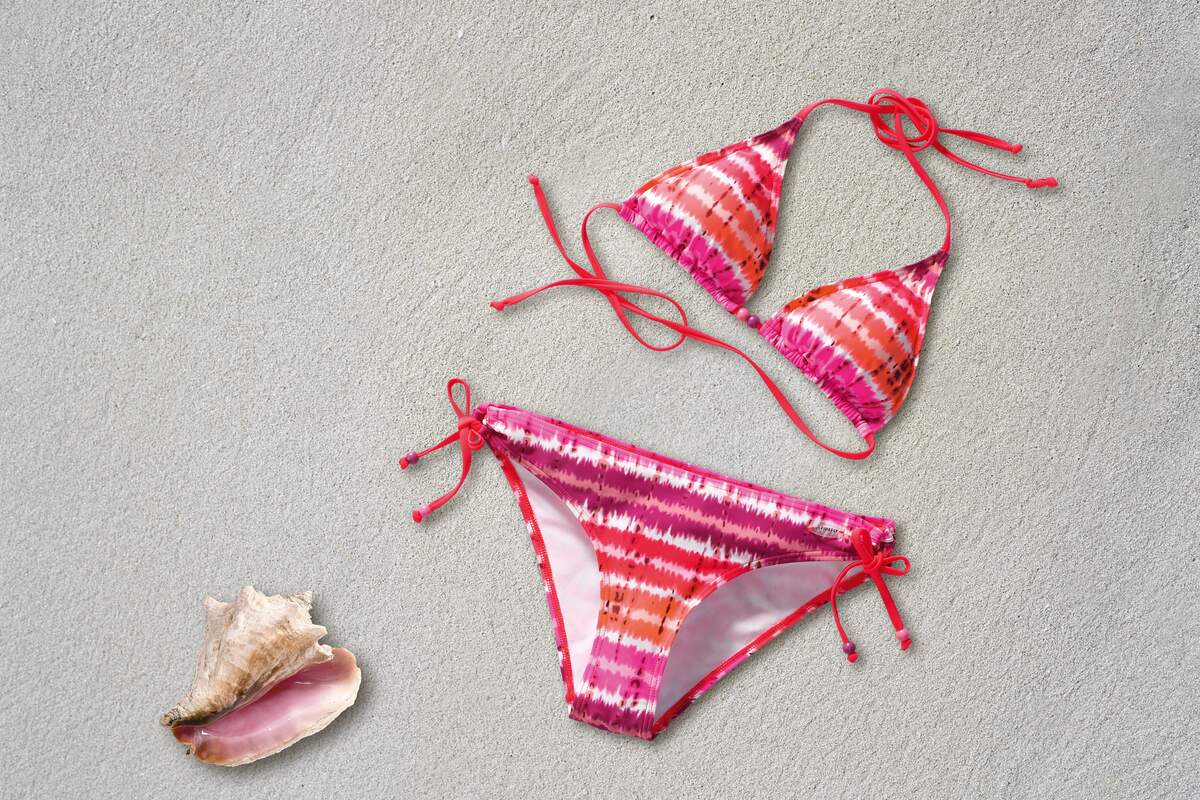

Bikini Day
Bikini Day marks the anniversary of the day the bikini debuted in 1946. Although women in ancient Rome had worn something similar to the bikini while playing an early version of handball, there was much covering used on women's swimwear at the turn of the twentieth century, making what would become the bikini seem unthinkable. Not only did bathing suits cover most of the body, bathing machines were often used as well.
The strict swimsuit rules began loosening a bit, and one-piece maillots were commonly being worn by 1915. The two-piece swimsuit was popular by the early 1940s, but unlike many swimsuits of today, it covered the navel, hips, and much of the buttocks. It was prominently worn by film stars such as Rita Hayworth and Ava Gardner. At this time, the Hays' production code allowed two-piece bathing suits in film, but not the showing of the belly button.
In 1946, at a time when good looking women were known as bombshells, two Frenchmen designed two-piece swimsuits that had names related to bombs and were meant to shock just like them. Designer Jacques Heim had a beach shop in Cannes, France. He created a two-piece swimsuit and called it "atome"—atom in English. Also during that year, Louis Réard, a French engineer who also ran his mother's lingerie shop, made a two-piece swimsuit that exposed the navel. He called it the bikini and introduced it four days after the United States began nuclear testing at the Bikini Atoll.
Réard introduced it at a press conference that he held at a public pool in Paris, France, on July 5, 1946. French stripper Micheline Bernardini wore it, as French fashion models refused to, as they considered it too revealing at the time. Photos went across the globe.
The first place the bikini began being accepted was on the French Riviera, in the early 1950s. It became more accepted in the United States by about 1960; this can partly be attributed to the increase in private pools, which gave women a secluded place to wear their bikini. The Sports Illustrated Swimsuit Issue debuted in 1964 and had a model in a white bikini on the cover. The James Bond film, Dr. No, prominently featured Ursula Andress in a white bikini. By the mid-1960s, bikinis were seen as the norm, and they are still popular today.
How to Observe Bikini Day
Celebrate the day by wearing a bikini and heading to the beach. If wearing a bikini isn't for you, perhaps you could watch a beach party film instead, such as How to Stuff a Wild Bikini or Bikini Beach. You could also listen to "Itsy Bitsy, Teenie Weenie, Yellow Polka Dot Bikini," and look at The Sports Illustrated Swimsuit Issue.





















